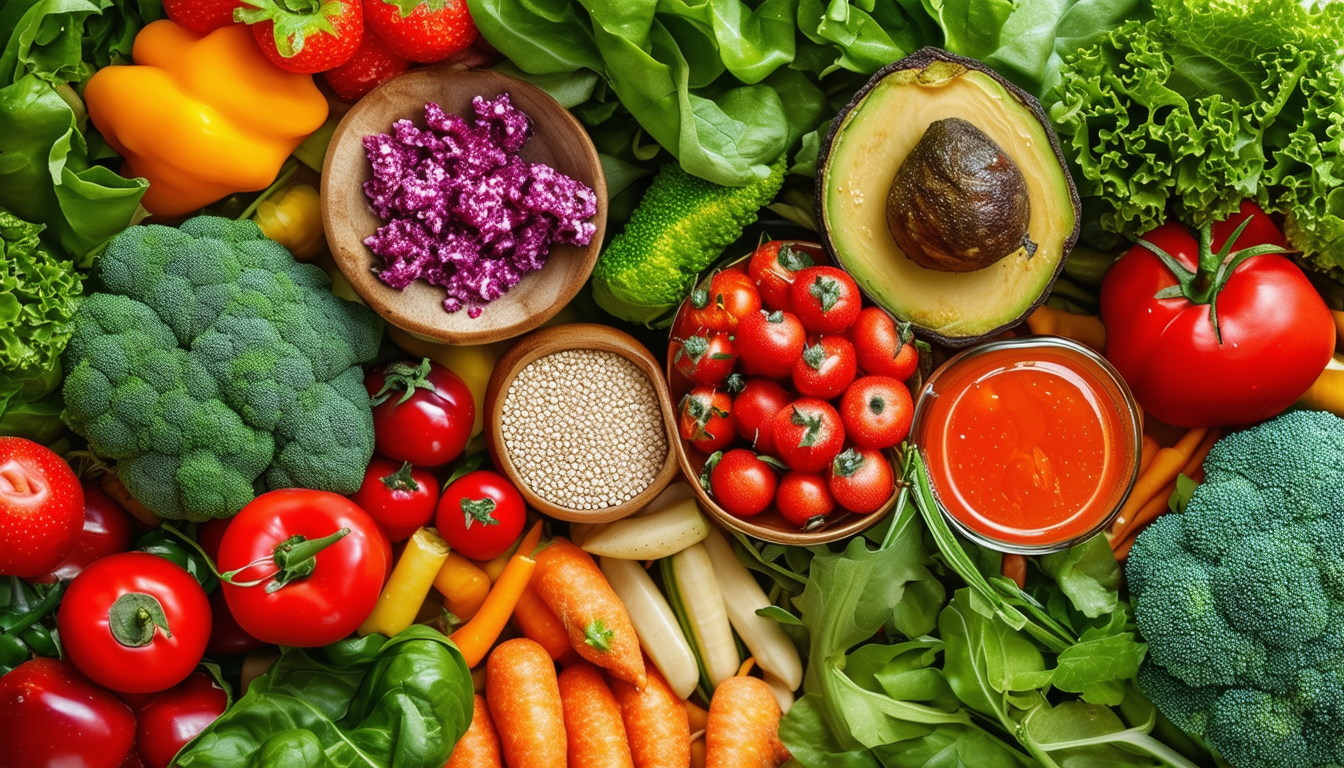In a world where self-discovery and personal growth have become paramount, numerous methodologies...
Plant-Based Living: A Guide To Veganism

Discover how a vegan lifestyle can transform your health, the environment, and the lives of animals.
The Health Benefits of a Plant-Based Diet
Adopting a plant-based diet can bring a multitude of health benefits. Studies have shown that vegans tend to have lower cholesterol levels, lower blood pressure, and a reduced risk of heart disease. A diet rich in fruits, vegetables, whole grains, and legumes provides essential nutrients that support overall health.
Furthermore, plant-based diets are often high in fiber, which aids in digestion and can help maintain a healthy weight. Many people report increased energy levels and improved mental clarity after switching to a vegan lifestyle.
Navigating Nutritional Needs: Protein and Vitamin B12
One of the most common questions for those considering a vegan diet is, 'How do I get enough protein?' Fortunately, there are plenty of plant-based sources of protein, including beans, lentils, tofu, tempeh, seitan, quinoa and more. Incorporating a variety of these foods into your diet can easily meet your protein needs.
Vitamin B12 is another concern, as it’s commonly believed to come naturally from animal products, however it’s actually produced by bacteria; animals and plants don’t produce it, they obtain it from the soil. Vegans can obtain B12 through fortified foods such as plant-based milks, breakfast cereals, and nutritional yeast, or by taking a B12 supplement. Regular monitoring of B12 levels through blood tests can ensure you are maintaining adequate levels.
The Environmental Impact of Veganism
Switching to a vegan diet is not only beneficial for your health but also for the environment. Animal agriculture is a leading cause of deforestation, water pollution, and greenhouse gas emissions. By reducing or eliminating animal products from your diet, you can significantly decrease your carbon footprint.
Additionally, plant-based diets require fewer natural resources such as water and land. Supporting sustainable farming practices and reducing demand for animal products can help protect ecosystems and biodiversity.
Embracing Animal Welfare Through Veganism
For many people, the decision to go vegan is driven by a desire to reduce animal suffering. The conditions in which many animals are raised for food can be inhumane, with overcrowded living spaces, lack of access to the outdoors, and stressful environments.
By choosing a plant-based diet, you are taking a stand against these practices and supporting a more compassionate approach to food production. Every vegan meal is a step towards a world where animals are treated with respect and kindness.
Social Challenges and How to Overcome Them
Transitioning to a vegan lifestyle can come with social challenges, such as dining out with friends or attending family gatherings. It can be helpful to research vegan-friendly restaurants in advance and communicate your dietary preferences to hosts beforehand, apps like HappyCow are very useful.
Another common challenge is addressing questions or criticisms from others. Educating yourself about the benefits of veganism and sharing your personal reasons for choosing this lifestyle can help create understanding and open-mindedness. Joining vegan communities, both online and offline, can provide support and shared experiences as you navigate your plant-based journey.
If you would like to learn more about becoming vegan, check out my personal journey and major challenges when becoming vegan and book recommendations.
.png?width=400&height=300&name=2024%20Final%20Logo%20(400%20x%20300%20px).png)
